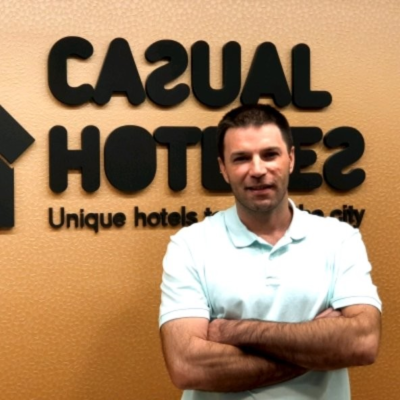Why Use a Channel Manager?
The technology, driven by increasingly competitive prices, creates optimal market conditions for the traveller.
According to data from the ITB Academy,since 1995, international travel has doubled, which means a very interesting market for all types of players, especially for those who work in mobility, accommodation and catering.
This diversification of the market has resulted in a specialization of the service and a distribution that is increasingly focused on market segmentation. This fact, linked to concepts such as multi-device navigation, requires a technological reconversion of all those brands that want to follow in the footsteps of the most demanding travellers. Interesting data, such as that extracted by the eMarketer consulting firm, puts US travelers who use mobile devices to book their trips at 50%.This data can give us a focus on where the market is moving and what our role should be in the complicated network of channels generated in tourism.
The use of the Channel Manager as a competitive differentiator of your hosting
As for the potential of online channels, competition in distribution involves having a presence, gaining visibility and increasing the attractiveness of these channels. It is expected to increase by more than 50% in 2017 and the trend will be upward. This diversification of channels and the unification of management technology is the “workhorse” of the Channels Managers. As a result, tools have emerged that make it possible to unify the management and implementation of pricing strategies under the supervision of Revenue Management.
Manual management is something that has already been assumed to be unfeasible in the management of the distribution of accommodation, although there are always “romantics” who continue to “pick-up” manual tariffs.
Both for those who have not yet made the big leap and for those who are still suspicious of this technology to obtain great advantages, here are some reasons why the use of Channel Manager is a differential value in your distribution strategy:
1. Increase in the number of online bookings.
The Channel Manager’s versatility makes it easy to distribute across a large volume of channels, contributing to positioning yourself in channels where your competition may not be distributing. Moving in a more flexible way than our competitors can lead us to distribute in new markets and obtain better results.
2. Increased income.
The Channel Manager allows you to have a real-time knowledge of the availability of the hosting associated with the distribution being made. This knowledge, linked to the number of channels and the costs associated with each of them, will enable us to optimise our availability.
3. Reduction of the risk of overbooking.
Manual management of channels requires inefficient management of availability. The inventory grouping and automatic availability update ensures that we work in a real environment in terms of availability and accommodation prices. This task is made easier especially in the integration part with the internal hosting management program (PMS).
4. Time reduction.
Inventories in accommodations and their layout can change quickly so inventory automation saves us the hassle of changing availability and closing dates. Each time a booking is made, it will be discounted from the saleable units in each of the portals and will avoid wasting time entering each of the extranets of the portals where we are distributing the product.
5. Online reinforcement of the direct booking.
It is curious how the possibility of booking through an OTA can revert to a direct sale. This phenomenon is easily explained; if a traveler investigates multiple options in an OTA, he often visits the accommodation website. In this way, the traveller can end up booking on the accommodation website and avoids paying the corresponding commission.
6. Eliminate manual processes.
The Channel Manager is able to automatically update the inventory across your entire distribution network, including the web itself. This saves a lot of time as well as frustrating manual data entry. The productivity of the person in charge of these tasks can focus on other types of activities.
7. Integration with other hosting systems.
Today, the technological aspect of system integration is often more of an advantage than an impediment. Being able to work with inventory or billing management based on complete integration will make it easier for departments such as receiving or administration. This is a clear example of time reduction, unification of information and reduction of traveler acquisition costs.
8. Centralized distribution knowledge platform.
The centralised management of distribution in the offer, through this type of system, enables complete transparency taking into account different types of systems and channels. It will no longer be necessary to assign the offer by channels and, in turn, we will obtain information on which channels are working best within each market or traveler profile.
The use of the Channel Manager will be the first step towards the implementation of technology that will facilitate the distribution of our hosting. From then on, and with a commitment to professionalisation, it is advisable to analyse other types of systems such as the RMS (Revenue Management System). Its aim will be to take advantage of the knowledge generated in the accommodation to optimise the pricing and availability strategy that we associate at all times. This situation will be the turning point that will really change our management concept by optimising ratios such as RevPar (income per available room) or ADR (average daily rate).

















